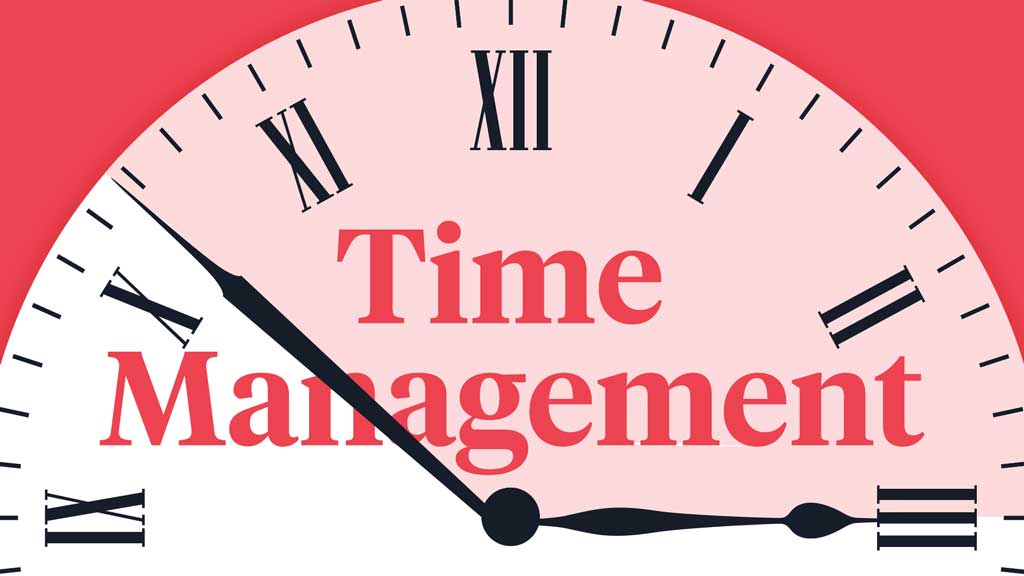Table of Contents
ToggleWhat is Time Management?
Time management refers to the process of planning, organizing, and controlling how you spend your time on various activities. The goal is to maximize efficiency and ensure that you allocate enough time to your most important tasks, while minimizing time wasted on less significant activities. By managing your time effectively, you can meet deadlines, avoid procrastination, and achieve a better work-life balance.
Why is Time Management Important?
Good time management has numerous benefits that can significantly improve your personal and professional life. Here’s why mastering time management is essential:
1. Increased Productivity
When you manage your time well, you’re able to focus on tasks that matter most, reducing distractions and multitasking. As a result, you complete tasks more efficiently and produce better results in less time.
2. Reduced Stress
Proper time management reduces the anxiety of last-minute deadlines and the feeling of being overwhelmed. By prioritizing your tasks and staying organized, you can tackle each responsibility calmly and effectively.
3. Improved Decision-Making
When you manage your time effectively, you have more mental clarity to make informed decisions. With a clear schedule, you can assess your options and choose what is most important without feeling rushed.
4. Achieving Personal and Professional Goals
Effective time management allows you to allocate resources (including time) toward achieving both short-term and long-term goals. By staying on top of your priorities, you can make continuous progress and reach milestones faster.
5. Better Work-Life Balance
By managing your work schedule effectively, you can carve out time for personal activities, family, and self-care. This balance leads to increased happiness and prevents burnout from long working hours.
Common Time Management Challenges
Even with the best intentions, time management can be tricky. Some of the most common challenges include:
- Procrastination: Delaying tasks until the last minute, often due to fear of failure or a lack of motivation.
- Distractions: Social media, emails, or office chatter can divert attention away from important tasks.
- Overcommitment: Taking on too many responsibilities can lead to burnout and difficulty meeting deadlines.
- Poor Planning: Not having a clear schedule or roadmap for the day can result in wasted time and missed opportunities.
Tips for Effective Time Management
The good news is that time management is a skill that can be developed with practice. Here are some practical tips for improving your time management:
1. Set Clear Goals
Establish both short-term and long-term goals. This will help you prioritize your tasks and direct your efforts toward what matters most. Break down larger goals into smaller, manageable tasks that can be tackled one step at a time.
2. Prioritize Tasks Using the Eisenhower Matrix
The Eisenhower Matrix is a powerful tool for determining which tasks are most important. It divides tasks into four categories:
- Urgent and Important: Tasks that need immediate attention (e.g., crises, deadlines).
- Important but Not Urgent: Tasks that are important for long-term goals but don’t require immediate attention (e.g., planning, strategy).
- Urgent but Not Important: Tasks that need to be done soon but are not important (e.g., interruptions, meetings).
- Not Urgent and Not Important: Tasks that are neither time-sensitive nor crucial (e.g., social media scrolling, distractions).
By focusing on important tasks and scheduling or delegating others, you can make better use of your time.
3. Create a Daily Schedule
Plan your day the night before by outlining the tasks you want to accomplish. Use a daily planner, calendar, or a productivity app to organize your time into blocks dedicated to specific tasks. Having a plan in place helps prevent decision fatigue and minimizes wasted time.
4. Use Time Blocking
Time blocking is a technique where you set aside chunks of time to focus on specific tasks. For example, allocate one hour for answering emails, two hours for a project, and 30 minutes for meetings. By sticking to a schedule, you reduce the risk of multitasking and become more focused on the task at hand.
5. Eliminate Distractions
Identify and minimize distractions that can waste your time. This could mean turning off social media notifications, closing unnecessary tabs, or setting boundaries with coworkers or family members. Consider using apps like Focus@Will or Forest to stay focused.
6. Learn to Say No
One of the key components of https://well-ness-fox.com is recognizing that you can’t do everything. Politely decline tasks, meetings, or commitments that don’t align with your goals or priorities. By saying “no” when necessary, you protect your time for more important activities.
7. Use the Pomodoro Technique
The Pomodoro Technique is a time management method that involves working in 25-minute intervals (Pomodoros), followed by a 5-minute break. After completing four Pomodoros, take a longer break (15-30 minutes). This method helps maintain focus while preventing burnout from long hours of work.
8. Delegate Tasks
Delegation is a critical time management skill, especially for managers or business owners. If there are tasks that others can do, hand them over to free up your time for more important work. Trusting others to handle some responsibilities can help you focus on higher-priority activities.
9. Set Realistic Deadlines
Set achievable deadlines for each task or project. Unrealistic deadlines can cause stress and result in poor-quality work. Break tasks into smaller, more manageable parts, and focus on meeting incremental deadlines.
10. Track Your Time
Sometimes, you may not realize how much time you’re spending on certain activities. Use a time-tracking app or a journal to log your activities throughout the day. This will help you identify areas where you’re wasting time and make adjustments for better efficiency.
Time Management Tools and Apps
There are plenty of digital tools available to help you improve your time management. Some popular ones include:
- Trello: A project management tool that allows you to organize tasks and collaborate with teams.
- Asana: A task and project management app that helps you break down projects and track progress.
- Todoist: A to-do list and task management tool that helps you stay on top of your priorities.
- RescueTime: A time-tracking app that helps you identify how you spend your time and find ways to be more efficient.
- Google Calendar: A free and easy-to-use calendar that helps you schedule meetings, reminders, and events.
Conclusion: Mastering Time Management
Effective time management is about making the best use of the time you have, prioritizing important tasks, and avoiding distractions. By setting clear goals, creating a schedule, and using time management techniques, you can improve your productivity, reduce stress, and achieve your objectives more efficiently.
Remember that time management is a skill that takes practice. The more you implement these strategies, the better you’ll become at managing your time and increasing your success in both personal and professional pursuits.










